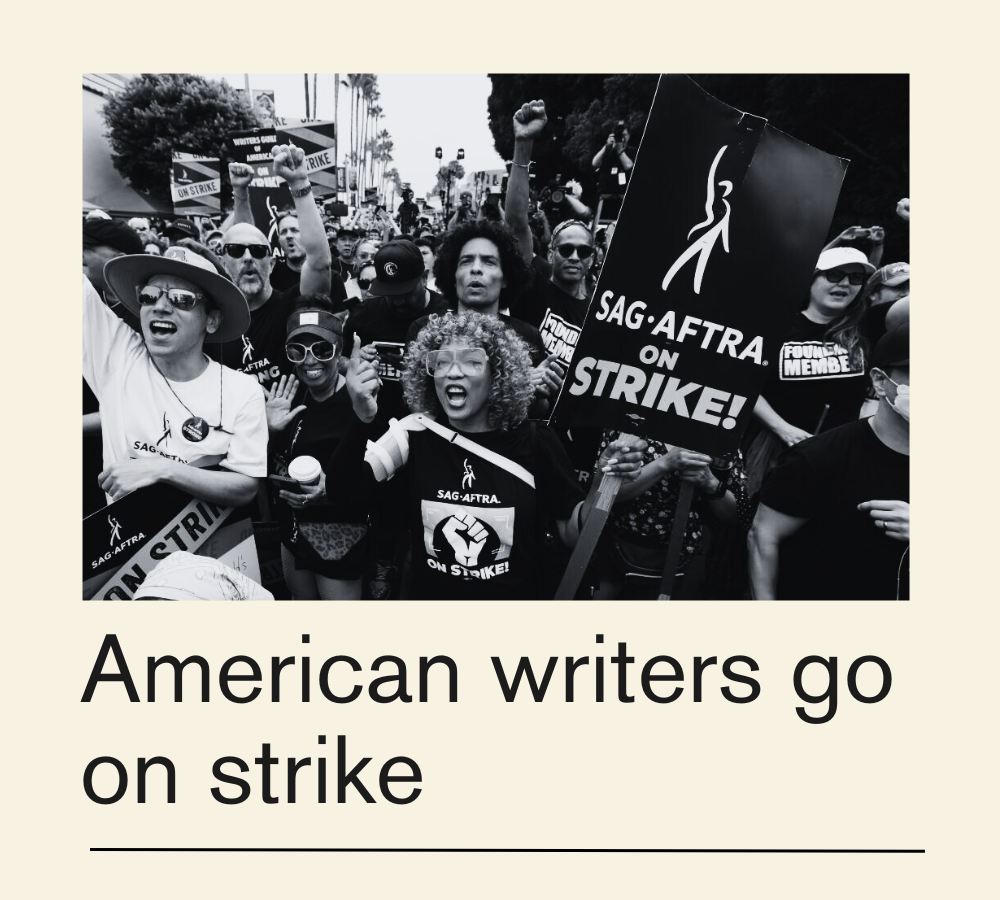Due to a labor dispute, the Writers Guild of America (WGA) went on strike on May 2, causing an all-around labor stoppage for television production and film. The 148 day strike came to an end on Sep. 27.
The strike resulted from a combination of issues, including conflicts over residuals for writers in response to streaming, along with Artificial Intelligence and its new role in the writing of television. In April 2023, the members of WGA voted to go on strike against the Alliance of Motion Picture and Television Producers (AMPTP) if an agreement could not transpire by May 1. The WGA officially began their strike on May 2, as no deal was reached between the unions. By July, the actors had joined the writers.
“It’s been a very long road, and I’m proud of this membership for hanging in there and this NegCom [negotiating committee] for staying with it, and we really got the deal we feel like we held out for,” Meredith Stiehm, president of the Writers Guild of America, said.
The strike lasted 148 days, which made it the second longest strike in Writers Guild History, tied with the strike of 1960 and five days shorter than the strike of 1988. Throughout the long labor stoppage, writers and supporters of the labor union have picketed and protested in Hollywood outside of companies such as Disney and Netflix.
“Working actors like me and my friends, we’re just trying to pay our rents or mortgages and put food on the table,” a protester said.
According to WGA, the AMPTP has cut much of the writers’ pay in response to streaming media. Compared to 10 years ago, writer pay has fallen by 23% while company profits have gone up by 50%.
“They’re spending more money than ever on making these shows, they’re making more profit from them than ever, but writers are making less money, they’re employing us for less time,” Adam Conover said. “If you look at the proposals they rejected, that caused us to go on strike, they’re proposals that would have protected writers, that would have made sure that we’re not just employed by the day but by the week and by the month.”
Along with the writers, the Screen Actors Guild – American Federation of Television and Radio Artists (SAG-AFTRA) also went on strike due to cut pay. In response to the double strike, many TV shows and different productions stopped altogether or have been postponed.
“I respect their right and their desire to get as much as they possibly can in compensation for their people,” Bob Iger, the CEO of Disney, said. “I completely respect that. I’ve been around long enough to understand that dynamic and to appreciate it, but you also have to be realistic about it with a business environment and what this business can deliver.”
In September, negotiations to end the strike began. On Sep. 27, WGA and AMPTP agreed on a three-year-long contract. On Oct. 9, 99% of WGA voted in favor of the contract and it took effect. Through the deal, writers received increased pay, new residuals based on viewership and assurances against AI. As of Nov. 9, the SAG-AFTRA strike also came to an end. Now, both writers and actors alike are free to promote and work on their productions.
“There is a Win-Win circumstance here that can only come about when everybody is paid their fair share,” Tom Hanks said.
Categories:
End of Writer’s Guild of America Strike
Alyssa Rains, Writer
November 10, 2023
About the Contributor

Alyssa Rains, Graphic Design Editor
This is my last year on the newspaper and I’m excited! I am in Orchestra and Athletic Training and will be doing graphics for the Sandstorm. It’s going to be a great year!

